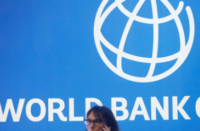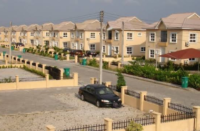Few months to the July 2020 proposed date for the implementation of the African Continental Free Trade Area (AfCFTA) agreement to be implemented, the Chair of African Union (AU) President Cyril Ramaphosa of South Africa has said.
In his keynote address, President Ramaphosa stated that the continent’s domestic priorities – including economic transformation, job creation and the consolidation of the social wage through reliable and quality basic services – depend on a politically stable and economically growing Africa.
According to him, infrastructure is at the core of Africa’s social, economic and political challenges, as well as crucial for sustainable development and inclusive growth, and for diversification through industrialisation and value addition.
Nigeria’s Lagos Chamber of Commerce and Industry (LCCI) and Manufacturers Association of Nigeria (MAN) have both raised concerns about the state of infrastructure in the country, citing it as a major bottleneck to implementation of the trade agreement.
“We know that AfCFTA will only become a reality if the infrastructure between African countries is developed. Infrastructure is at the core of Africa’s social, economic and political challenges. It is crucial for sustainable development and inclusive growth, and for diversification through industrialisation and value addition.
“As the Champion of the Presidential Infrastructure Champion Initiative under NEPAD, South Africa has a critical role to play – and must act on the opportunity presented – in profiling infrastructure development in support of the AfCFTA.
“Together with our fellow African countries, we must implement the AfCFTA agreement with purpose and determination. We must undertake the detailed work, extensive consultation and complex negotiations required to give life to this agreement.
“In this regard, South Africa will work with President Issoufou of Niger, who is the AU Champion on Continental Economic Integration. This work is directed towards the social and economic development of the Continent, and the realisation of a prosperous Africa based on inclusive growth and sustainable development”, Ramaphosa added.
As the second largest economy in the continent, Ramaphosa said South Africa will need to be pro-active and assertive in seeking common approaches on issues like tariff lines, rules of origin, custom controls, trade in services and new generation issues like competition and intellectual property.
“We will also need to address issues like the ease of doing business in different African countries. In this role, South Africa can also develop linkages between the SADC Regional Infrastructure Development Master Plan and the Presidential Infrastructure Champion Initiative. On this basis, it is proposed that South Africa hosts a High-Level Forum on Infrastructure during its term as AU chair”, he said.
Culled: The Guardian



